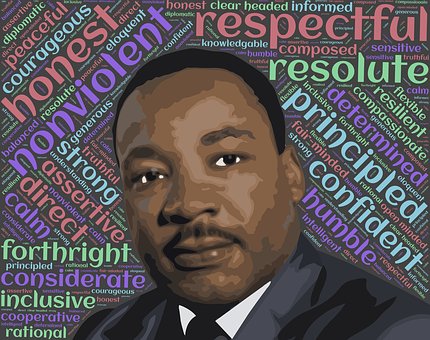 It’s that time of year again – that odd day when your neighbors’ kids have the day off from school but you are still trying to teach your kids while thinking it’s a normal Monday. In the middle of the school day, one of the kids knocks on your door and asks if your kids can come outside to go sledding. You might be surprised and ask why he isn’t in school, but then realize what you just asked him. You’re the homeschooler, don’t forget! That right there is the epitome of ironic situations.
It’s that time of year again – that odd day when your neighbors’ kids have the day off from school but you are still trying to teach your kids while thinking it’s a normal Monday. In the middle of the school day, one of the kids knocks on your door and asks if your kids can come outside to go sledding. You might be surprised and ask why he isn’t in school, but then realize what you just asked him. You’re the homeschooler, don’t forget! That right there is the epitome of ironic situations.
Since Martin Luther King Jr. Day has been celebrated for over 30 years, most of us would assume that everyone knows exactly what it is all about. We might be able to remember the announcement that made it a national holiday, or maybe even remember hearing our parents or grandparents telling us what life used to be like before the Civil Rights Act was passed. However, for those who were born in the 21st century, not much is known about Martin Luther King Jr. or what he accomplished. So, here’s a brief list of who Martin Luther King Jr. was, what he did, and what the affect was on the rest of our country.
- Martin Luther King Jr.’s real name was Michael King Jr.
Michael King Jr. was born on January 15, 1929. Both Martin Luther King Jr. and his father were originally named Michael. However, soon after Michael King Sr. replaced his deceased father-in-law as the minister of Ebenezer Baptist Church, he adopted the name Martin Luther in memory of the famous German Protestant leader. Later, his son followed in his footsteps and adopted the name for himself also. Years afterwards, Martin Luther King Jr. became the pastor of Dexter Avenue Baptist Church in Montgomery, Alabama.
- Martin Luther King Jr. led a “bus boycott”
Rosa Parks, an African American woman who refused to give up her seat on the bus to a white male, was arrested on December 1, 1955. That night, E.D. Nixon, the head of the local NAACP group, met with Martin Luther King Jr. and discussed plans for a citywide bus boycott. Nixon wanted King to initiate this boycott because of his youth, his training, and his standing in the community. Soon after that meeting, the Montgomery Bus Boycott began, lasting 382 days. During the harassment, the walks to work, and the abuse from the community, the homes of Nixon and King were both attacked by angry citizens. Taking the city of Montgomery to court, the African American community defeated the city’s ‘right’ to separate transportation, arguing that separate is never equal. After suffering several financial losses as a result of these rulings, the city of Montgomery, Alabama lifted their mandate on separate public transportation.
- All of Martin Luther King Jr.’s protests were peaceful
King did not want to combat racial violence and intimidation by adding more fuel to the fire. He knew that peaceful protests would make more of an impact than obnoxious riots. One such demonstration took place in Birmingham, Alabama. Even though these protestors were harmless, police authorities still arrested King and many of his supporters. From his jail cell, King stated, “Nonviolent direct action seeks to create such a crisis and foster such a tension that a community, which has constantly refused to negotiate, is forced to confront the issue.” However, though King’s protestors were always peaceful, the reactions to them were not always the same. Sometimes, those marching in a demonstration would be sent to the hospital with some major injuries.
- Martin Luther King Jr.’s demonstrations led to national changes
As a result of the protests of King’s group and supporters, many people of America jumped aboard the train for racial equality. In one of King’s famous speeches, he emphasized what he wished America would be like in the future saying, “I have a dream that my four children will one day live in a nation where they will not be judged by the color of their skin but by the content of their character.” ( “I Have A Dream” speech, August 28, 1963) Soon after this nationally televised discourse, King received the Nobel Peace Prize. In 1965, President Lyndon B. Johnson sided with King and his followers and signed the Voting Rights Act, an act which gave African Americans the right to vote for public office.
Even though Martin Luther King Jr. was a flawed man just like any one of us, he was able to accomplish great things through the help of his vision, his supporters, and most importantly, his God. As we go about life, let us remember what many people went through in order to bring about equality. He can be a reminder to all of us that we should stand up for what is right, no matter what the outcome may be.
1 Samuel 16:7b “…for the Lord seeth not as man seeth; for man looketh on the outward appearance, but the Lord looketh on the heart.”
To read more about Martin Luther King Jr., checkout this link: https://www.biography.com/people/martin-luther-king-jr-9365086

